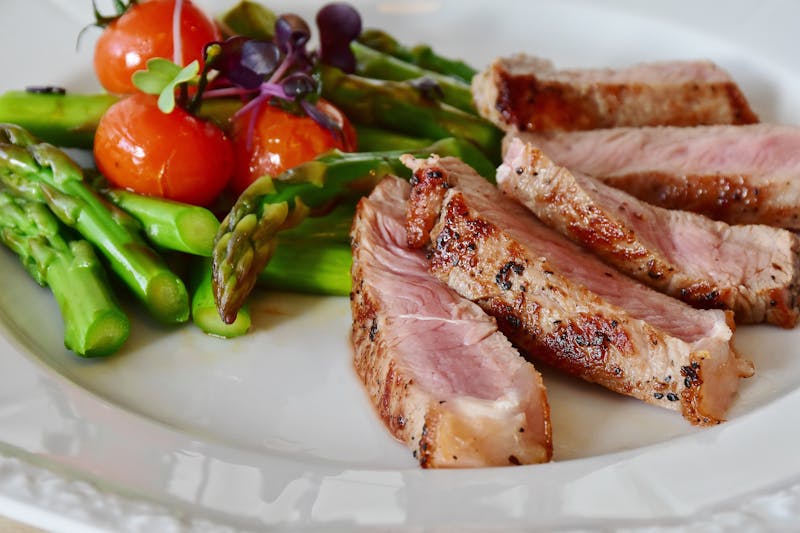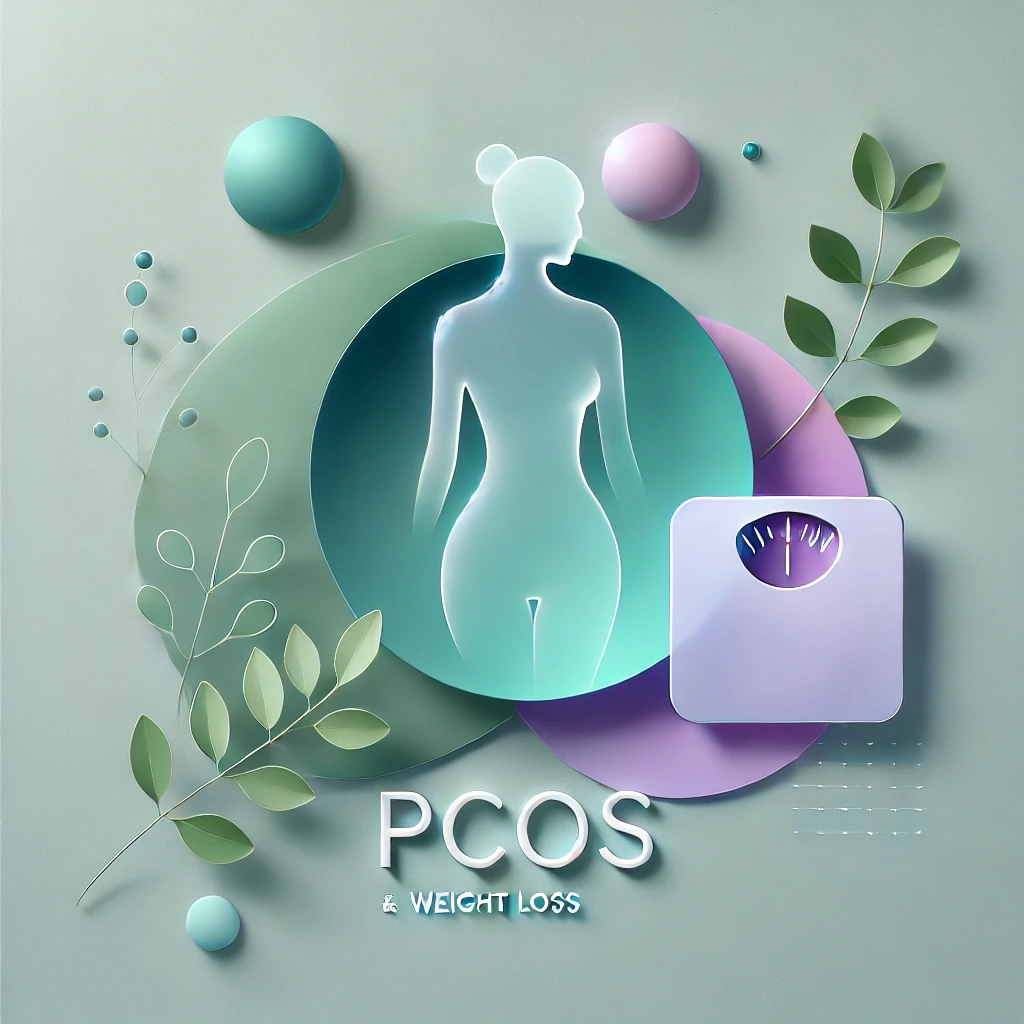Last Updated on December 6, 2025 by shawnshealth
Why is it so hard to lose weight with PCOS? Uncover the real reasons and get simple, effective tips to finally see results.
Introduction: Why Is It So Hard to Lose Weight with PCOS?
It is an often asked but just as often misunderstood question; why is it so hard to lose weight with Polycystic Ovary Syndrome (PCOS). PCOS affects millions of people worldwide, making it one of the most common hormonal disorders. Among its many challenges, weight management is often cited as one of the most frustrating and persistent struggles. Yet, why is it so hard to lose weight with PCOS, and what can be done about it?
In this article, we’ll explore why PCOS makes weight loss so difficult and provide proven strategies to help you overcome these hurdles. With a balanced approach that includes nutrition, physical activity, and mental wellness, achieving weight loss success is possible.
🧠 PCOS makes weight loss harder—but it’s not the only reason it feels impossible. If you’ve ever felt stuck, frustrated, or like your body’s working against you, you’re not alone. Even without PCOS, fat loss can be slow, confusing, and emotionally draining. For a deeper look at why weight loss is so hard—and how to make it easier without falling into restriction—check out
👉 Why Is Weight Loss So Hard? An Honest Guide to Making It Easier
1. Why Is It So Hard to Lose Weight with PCOS?
- Insulin resistance slows fat burning
- Hormonal imbalances trigger cravings
- Sluggish metabolism impacts calorie use
- Chronic inflammation promotes fat storage
These factors make PCOS weight loss uniquely challenging, requiring a specialized approach.
2. Top Reasons PCOS Makes Weight Loss Difficult
- Elevated insulin levels increase fat storage
- Androgen excess leads to belly fat
- Inflammation disrupts metabolism
- Emotional stress impacts eating habits
Understanding these challenges helps you choose more effective strategies.
3. How to Lose Weight with PCOS Naturally
- Focus on a low-glycemic, whole food diet
- Prioritize strength training over cardio
- Get 7–9 hours of quality sleep
- Manage stress with mindfulness
Lifestyle changes tailored to PCOS can boost long-term weight loss.
4. Best Tips for Overcoming PCOS Weight Struggles
- Eat balanced meals to stabilize blood sugar
- Avoid crash diets that worsen symptoms
- Stay consistent—progress is often slow
- Consider working with a specialist
These tips support fat loss while balancing PCOS hormones.
➡️ Want the complete breakdown? Read our Ultimate Weight Loss & Fat Loss Guide.
Table of Contents
As an Amazon Associate, I earn from qualifying purchases. This means I may receive a commission if you purchase through links on this site, at no extra cost to you.
Always consult your doctor before starting any new exercise program. The author is not responsible for injuries or health issues arising from the use of this information.
Check out this video from PCOS Weight Loss for dietician approved weight loss tips.
Authors Note:
PCOS adds an extra layer of difficulty to fat loss—but it doesn’t make it impossible. Even in extreme conditions, the body will burn through fat when energy demands exceed supply. So while “I can’t lose weight” isn’t biologically accurate, it’s absolutely true that PCOS makes the process harder.
We all face different challenges. The key is to accept them, address them, and move forward.
- Can PCOS make fat loss tougher? Yep.
- Can you still get fit? Yep.
- Will less fat and better insulin sensitivity ease symptoms? Most likely.
- Will improved body composition boost your quality of life? Without a doubt.
Being physically fit won’t fix everything—but it’s a powerful asset in your corner.
Blessings
💪 Maximize your at-home workouts with gear that works. Consistency gets easier when your setup supports real progress.
👉 Explore essential equipment to stay strong and motivated.

What Is PCOS?
PCOS is a hormonal disorder that affects 1 in 10 women of childbearing age. It’s characterized by symptoms such as irregular periods, excess androgen levels (male hormones), and ovarian cysts. Beyond these symptoms, many people with PCOS also experience insulin resistance, inflammation, and hormonal imbalances—all of which play a significant role in weight gain and difficulty losing weight.
Common Symptoms of PCOS:
- Irregular menstrual cycles
- Excessive hair growth (hirsutism)
- Acne or oily skin
- Thinning hair on the scalp
- Weight gain, especially around the abdomen
🔍 Want a deeper dive into PCOS symptoms? Check out this Harvard Health overview of Polycystic Ovary Syndrome for expert insights on causes, hormonal patterns, and symptom profiles.
What Causes PCOS?
The exact cause of PCOS is still unknown, but researchers believe it stems from a combination of genetic and environmental factors. Several underlying mechanisms contribute to the development of PCOS:
1. Insulin Resistance
When cells in the body become resistant to insulin, the pancreas produces more of this hormone to compensate. High insulin levels can stimulate the ovaries to produce more androgens, which interfere with normal ovulation and contribute to weight gain.
2. Hormonal Imbalance
Excess androgens, such as testosterone, disrupt the delicate balance of reproductive hormones, affecting menstrual cycles and contributing to many of the visible symptoms of PCOS.
3. Chronic Inflammation
Low-grade inflammation is often observed in people with PCOS. This inflammation may drive insulin resistance and worsen hormonal imbalances.
4. Genetics
PCOS often runs in families, suggesting a genetic predisposition. However, environmental and lifestyle factors can influence whether someone develops the condition.

Why Does PCOS Make It Harder to Lose Weight?
Several factors contribute to the difficulty of losing weight with PCOS:
1. Insulin Resistance
Many people with PCOS experience insulin resistance, where the body’s cells don’t respond effectively to insulin. This leads to higher insulin levels, promoting fat storage and making it harder to burn fat.
Study Reference: A 2021 study published in the Journal of Clinical Endocrinology & Metabolism highlighted that insulin resistance is prevalent in up to 70% of people with PCOS, making it a critical target for weight management strategies.
2. Hormonal Imbalances
Elevated levels of androgens can disrupt normal fat distribution and metabolism. These hormones can also increase appetite and cravings for high-calorie foods.
3. Chronic Inflammation
Inflammation associated with PCOS can interfere with metabolism and increase the risk of weight gain.
4. Slower Metabolism
PCOS can reduce the metabolic rate, meaning fewer calories are burned even at rest.
Proven Strategies to Overcome PCOS Weight Loss Challenges
1. Nutritional Strategies
- Focus on a Low-Glycemic Diet: Foods with a low glycemic index (GI) help stabilize blood sugar levels and improve insulin sensitivity. Prioritize whole grains, lean proteins, and non-starchy vegetables. Examples of low-GI foods: Quinoa, lentils, leafy greens, and berries. Check out this Low glycemic diabetic cookbook by dr. Yolanda Gill
- Incorporate Anti-Inflammatory Foods: Include foods rich in omega-3 fatty acids, antioxidants, and fiber to combat inflammation. Examples include salmon, walnuts, turmeric, and spinach.
- Practice Portion Control: Eating smaller, balanced meals throughout the day can prevent insulin spikes and maintain energy levels.
- Limit Processed Foods and Sugars: Avoid sugary snacks and processed carbohydrates, which can worsen insulin resistance.
⚖️ Portion control doesn’t have to be guesswork. See my article on 👉 Portion Perfection with a Digital Food Scale to learn how precision can simplify your meals and support real progress.

2. Physical Activity for PCOS
- Strength Training: Lifting weights or doing bodyweight exercises helps build muscle, which improves insulin sensitivity and boosts metabolism. Image Suggestion: A smiling person using resistance bands or performing squats outdoors.
- High-Intensity Interval Training (HIIT): Short bursts of intense activity followed by rest can be highly effective for weight loss and improving insulin resistance.
- Walking and Low-Impact Cardio: For beginners, daily walks or low-impact cardio exercises like swimming can still make a significant difference.
🏋️♀️ Strength training isn’t optional—it’s essential. Building muscle boosts metabolism, improves insulin sensitivity, and helps balance hormones.
👉 See my article on Strength Training for Women for practical strategies that actually work.

3. Mental and Emotional Wellness
- Stress Management: Chronic stress can exacerbate PCOS symptoms by increasing cortisol levels, which contributes to weight gain. Incorporate mindfulness techniques such as yoga, meditation, or journaling.
- Prioritize Sleep: Poor sleep disrupts hormones that regulate appetite and metabolism. Aim for 7-9 hours of quality sleep per night. Try a weighted blanket to help you sleep (I have this one at home and love it!)
- Seek Support: Joining a PCOS support group or working with a therapist familiar with PCOS can provide motivation and accountability.

4. Supplements for PCOS Weight Loss
Some supplements can help manage PCOS symptoms and support weight loss efforts. However, supplements should always be taken in conjunction with a healthy diet and exercise routine, and it’s best to consult a healthcare provider before adding any to your regimen.
Inositol:
Inositol is a substance that can improve insulin sensitivity, reduce androgen levels, and restore ovulation. Studies suggest that inositol supplementation can help manage PCOS symptoms and promote weight loss.
Vitamin D:
Many women with PCOS are deficient in vitamin D, which is linked to insulin resistance and weight gain. Supplementing with vitamin D can help improve insulin sensitivity and promote weight loss.
Omega-3 Fatty Acids:
Omega-3 fatty acids, found in fish oil or plant-based sources like flaxseeds and chia seeds, have anti-inflammatory properties and may improve metabolic health. They can also help manage insulin resistance and support fat loss.

Addressing Common Myths: Why is it so Hard to Lose Weight with PCOS
There are a lot of myths and misconceptions about PCOS and weight loss. Let’s debunk a few of them:
Myth 1: “PCOS Causes Weight Gain in All Women.”
While weight gain is common in women with PCOS, not all women will experience this. Some women may maintain a healthy weight despite having PCOS.
Myth 2: “PCOS Makes Weight Loss Impossible.”
Although PCOS can make weight loss more challenging, it is far from impossible. With the right strategies and persistence, weight loss is achievable for women with PCOS.
Myth 3: “You Have to Follow a Strict, Low-Calorie Diet.”
The key to weight loss with PCOS is adopting a balanced diet that focuses on whole, nutrient-dense foods. Restricting calories too much can lead to nutritional deficiencies and may even exacerbate symptoms of PCOS.

Product Recommendations
- 💊 Supplements can support your progress—but they’re not magic pills. Consider options like inositol or omega-3s, which may help improve insulin sensitivity and hormonal balance.
👉 Shop PCOS-friendly supplements on Amazon to explore what fits your routine and goals - 📘 Books and Guides For a deeper dive into natural PCOS management, check out PCOS SOS by Dr. Felice Gersh. This integrative guide offers a step-by-step approach to restoring hormonal balance, improving metabolic health, and reclaiming your rhythm—without relying solely on medication.

Conclusion
Why is it so hard to lose weight with PCOS? Losing weight with PCOS is undeniably challenging, but it’s not impossible. By understanding the underlying factors and addressing them with a holistic approach that combines nutrition, physical activity, and mental wellness, you can take control of your health and achieve your goals.
🏠 Workouts don’t have to be complicated to work. Simple, consistent movement can reshape your body and support lasting fat loss.
👉 Read my guide on simple home workouts to build strength and momentum—no gym required.
🌿 Want more support and education on PCOS? Visit the PCOS Awareness Association for trusted resources, community support, and practical tools to help you manage symptoms.
🔥 Gear to Help You Achieve Your Health and Fitness Goals 💪
If you’re looking for tools to enhance your fitness journey, check out this. Explore top-rated fitness gear on Amazon to enhance your workouts. Check out the latest picks here! 🛒 to support your workouts and progress.
🚀 Find equipment designed to boost strength, endurance, and overall performance!
⚠️ Short disclaimer: As an Amazon Associate, I earn from qualifying purchases.
FAQ: Weight Loss and PCOS
1. Why is it so hard to lose weight with PCOS?
- Hormonal imbalances disrupt fat metabolism
- Insulin resistance increases fat storage
- Elevated androgens promote belly fat
- Cravings and fatigue affect healthy habits
2. How does insulin resistance affect PCOS weight loss?
- Causes blood sugar spikes and crashes
- Encourages fat storage, especially around the belly
- Makes it harder to burn fat efficiently
3. Can diet alone help with PCOS weight loss?
- A low-glycemic, anti-inflammatory diet helps
- Reducing processed carbs improves insulin sensitivity
- Balanced meals support hormone regulation
4. Is exercise effective for PCOS weight loss?
- Strength training improves insulin sensitivity
- Moderate cardio boosts metabolism
- Consistency matters more than intensity
5. Does sleep impact weight loss with PCOS?
- Poor sleep increases cortisol and cravings
- Quality sleep supports hormone balance
- Aim for 7–9 hours nightly
6. What role do stress and cortisol play in PCOS weight gain?
- High cortisol leads to fat storage
- Chronic stress disrupts hormones
- Mindfulness and relaxation help reduce stress
7. Can medications help with weight loss in PCOS?
- Metformin may improve insulin resistance
- Birth control pills regulate hormones (but not weight)
- Always consult a healthcare provider
8. What are realistic weight loss goals with PCOS?
- 5–10% of body weight can improve symptoms
- Progress may be slower than average
- Focus on consistency, not perfection
He sent His word and healed them And delivered them from their destructions. – Psalm 107:20




